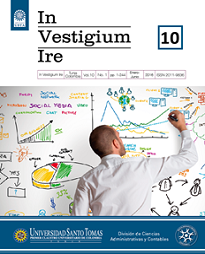The isp’s role in improving intellectual property protection on the digital economy
Contenido principal del artículo
Resumen
Existe en la actualidad una tendencia proteccionista de los derechos de autor en la economía digital, que busca favorecer la industria de contenidos atentando los intereses, las libertades y los derechos de los usuarios de Internet. Si bien ello se da como respuesta a un evidente aumento de las infracciones y a la piratería, también es consecuencia de una incapacidad de esta industria en innovar y adaptarse a una nueva realidad. A través de este artículo se busca analizar el rol de los proveedores de servicios de Internet, o ISP, dentro de esta problemática, en su calidad de actores encargados de identificar y bloquear posteriormente los contenidos presuntamente infractores. Se presentará un panorama de lo anterior, a partir de la experiencia norteamericana, y se planteará por último el modelo canadiense como una solución viable y garantista.
Detalles del artículo
Cómo citar
Vargas-Chaves, I. (2016). The isp’s role in improving intellectual property protection on the digital economy. In Vestigium Ire, 10(1), 112-117. Recuperado a partir de http://revistas.ustatunja.edu.co/index.php/ivestigium/article/view/1183
Número
Sección
Artículos Núm. 10
Investigium Ire de http://revistas.ustatunja.edu.co/index.php/ivestigium esta bajo una licencia Creative Commons Reconocimiento-NoComercial-SinObraDerivada 4.0 License.
Citas
Achareandi, R., & Maldonado, F. (2012). Observatorio de piratería y hábitos de consumo de contenidos digitales. Madrid: IDC España.
Drucker, P. (2012). Innovation and Entrepreneurship. Londres: Routledge.
Garrote Fernández-Diez, I. (2003). El derecho de autor en internet. Madrid: Comares.
Kleinschmidt, B. (2010). An International Comparison of ISP’s Liabilities for Unlawful Third Party Content. International Journal of Law and Information Technology, 18(4).
Leyshon, A. (2009). ¿The software slump?: digital music, the democratisation of technology, and the decline of the recording studio sector within the musical economy. Environment and planning, 41 (6).
Link, Karina (2014). Business Model Dynamics In The Music Industry: Video Killed The Radio Star - Or How The Internet Altered Business Models In The Music Industry. University of Twente Repository.
Marsden, C. (2008). Beyond Europe: The Internet, regulation, and multistakeholder governance: ¿representing the consumer interest?. Journal of Consumer Policy, 31 (1).
_______. (2011). Network neutrality and Internet service provider liability regulation: Are the wise monkeys of cyberspace becoming stupid?. Global Policy, 2 (1)
Marshall, L. (2012). The International Recording Industries. New York: Routledge.
Miller, K. (2010). Uniform dispute resolution policy: an uphill fight for domain name registrants, Journal of Contemporary Legal Issues, 19.
Musiani, F, Schafer, V. & Le Crosnier, H. (2013). Net neutrality as an Internet governance issue: the globalization of an American-born debate. Revue Française d’Études Américaines, 4
Nadal Sánchez, H. (2011). Sin neutralidad en la red. Neutralidad de la red y otros retos para el futuro de Internet: Actas del VII Congreso Internacional Internet, Derecho y Política. Barcelona: UOC.
Ryan, J., & Caitriona, H. (2010). Internet access controls: Three Strikes ‘graduated response’ initiatives. Draft paper. Institute of International and European Affairs.
Sidak, J. (2006). A consumer-welfare approach to network neutrality regulation of the Internet. Journal of Competition Law and Economics 2 (3)
Stamatoudi, I. (2010). Copyright Enforcement and the Internet. Londres: Kluwer Law International.
Drucker, P. (2012). Innovation and Entrepreneurship. Londres: Routledge.
Garrote Fernández-Diez, I. (2003). El derecho de autor en internet. Madrid: Comares.
Kleinschmidt, B. (2010). An International Comparison of ISP’s Liabilities for Unlawful Third Party Content. International Journal of Law and Information Technology, 18(4).
Leyshon, A. (2009). ¿The software slump?: digital music, the democratisation of technology, and the decline of the recording studio sector within the musical economy. Environment and planning, 41 (6).
Link, Karina (2014). Business Model Dynamics In The Music Industry: Video Killed The Radio Star - Or How The Internet Altered Business Models In The Music Industry. University of Twente Repository.
Marsden, C. (2008). Beyond Europe: The Internet, regulation, and multistakeholder governance: ¿representing the consumer interest?. Journal of Consumer Policy, 31 (1).
_______. (2011). Network neutrality and Internet service provider liability regulation: Are the wise monkeys of cyberspace becoming stupid?. Global Policy, 2 (1)
Marshall, L. (2012). The International Recording Industries. New York: Routledge.
Miller, K. (2010). Uniform dispute resolution policy: an uphill fight for domain name registrants, Journal of Contemporary Legal Issues, 19.
Musiani, F, Schafer, V. & Le Crosnier, H. (2013). Net neutrality as an Internet governance issue: the globalization of an American-born debate. Revue Française d’Études Américaines, 4
Nadal Sánchez, H. (2011). Sin neutralidad en la red. Neutralidad de la red y otros retos para el futuro de Internet: Actas del VII Congreso Internacional Internet, Derecho y Política. Barcelona: UOC.
Ryan, J., & Caitriona, H. (2010). Internet access controls: Three Strikes ‘graduated response’ initiatives. Draft paper. Institute of International and European Affairs.
Sidak, J. (2006). A consumer-welfare approach to network neutrality regulation of the Internet. Journal of Competition Law and Economics 2 (3)
Stamatoudi, I. (2010). Copyright Enforcement and the Internet. Londres: Kluwer Law International.


